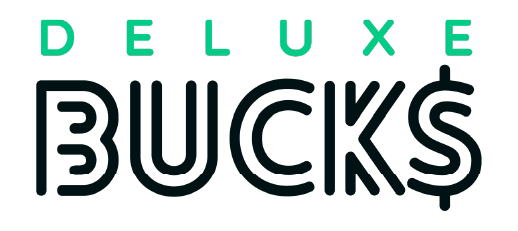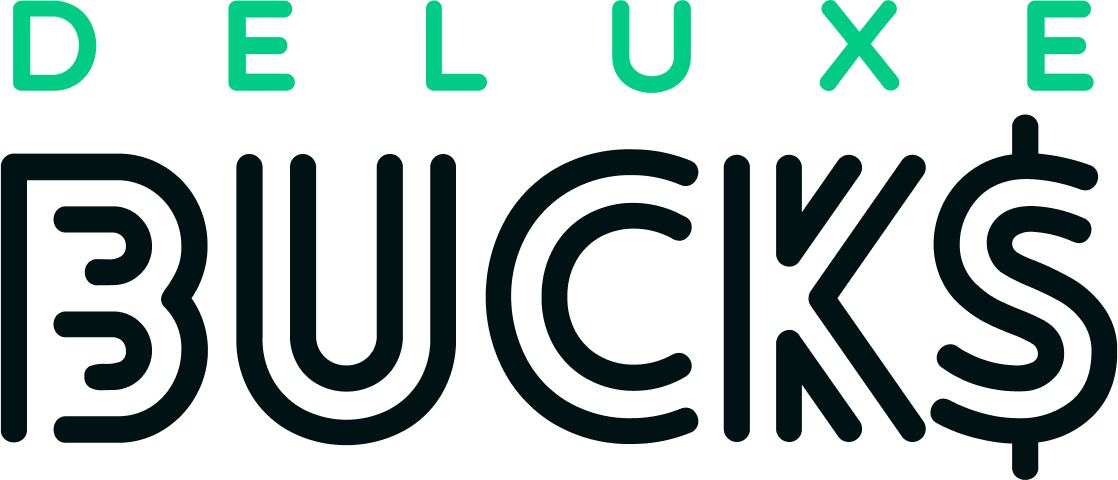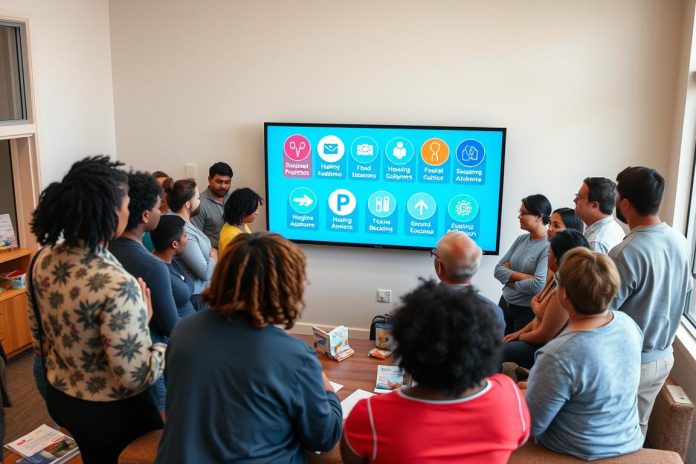Imagine finding a lifeline when you’re underwater financially. Across America, millions have turned this dream into reality with federal assistance. The Federal government offers trillions in support to those in dire need every year. Yet, many are still lost in their search for aid. They don’t know about unemployment insurance and the Lifeline program that can lighten their financial load1.
Here’s some good news: getting public benefits doesn’t need to be hard. A simple-to-use tool makes finding government assistance as easy as clicking a mouse. It opens doors to discounts on phone services and even a free Vortex government phone. Without this tool, you might miss out on valuable federal assistance1.
Many U.S. federal agencies have improved assistance programs. They want to meet Americans’ needs, especially now with COVID-19’s challenges and the ending of certain aids. This effort significantly helps veterans, low-income families, and individuals with disabilities1.
Key Takeaways
- Billions of dollars in financial support and government aid are available to assist Americans in need.
- With approximately 42.5 million Americans living with disabilities, there’s a strong necessity for accessible financial support1.
- Tools are available to help identify crucial programs such as SSI, Medicaid, and discounted phone services1.
- The gap in awareness and application can lead to unclaimed benefits, which impact populations like the elderly significantly2.
- Personalized assistance and databases provided by some tools can make navigating government benefits more efficient.
- Understanding the different types of assistance and their criteria is essential for successfully accessing aid.
- Success stories demonstrate the positive impact of securing government assistance, from housing grants to communication service discounts1.
Understanding the Scope of Government Assistance Programs
The world of government aid offers many types of help, from cash for those in need to support for disabled folks. These programs aim to lift people up and improve communities. Discover the impact on people with disabilities, the elderly, and how programs like Lifeline make communication affordable.
What is the Federal Government Doing With Trillions in Aid?
Welfare spending is complex, spreading across 14 government departments and 89 different programs. Welfare is the third largest expenditure, after Social Security and Medicare but more than defense3. In FY 2016, the federal government spent 74% ($829 billion) of over $1.1 trillion on welfare3. This shows a strong focus on improving societal welfare through financial aid.
Assistance for Specific Groups: Supporting Americans with Disabilities
Approximately 42.5 million Americans live with disabilities, highlighting the need for strong support from disability grants and programs like SSI and Medicaid.
These programs offer financial help for essentials and medical services. Medicaid is key for medical coverage for low-income folks, the disabled, and seniors, showing the broad support of welfare programs.
The Lifeline Program and Access to Communication Services
The Lifeline program is a prime example of federal aid for affordable communication. It targets low-income families, cutting phone service costs and offering free devices like the Vortex government phone. Its goal is to bridge the digital divide, making sure every American can access vital communication tools.
How SSI and Medicaid are Bolstering Low-Income and Elderly Populations
SSI and Medicaid are key supports for low-income, disabled, or elderly Americans. They offer financial and healthcare support, helping maintain a good life quality for vulnerable people. It reflects our society’s care for its members through well-organized support systems.
In conclusion, government aid through programs like Medicaid, SSI, and Lifeline is wide-ranging and essential. These programs work together towards a fair society by making financial and service support available to those in need. They ensure support for low-income, elderly people, and Americans with disabilities.
Exploring Types of Government Assistance
Getting to know the different kinds of government help is key. There are many programs meant to support different people’s needs. If you’re looking for info on public assistance, government grants, federal student aid, or housing assistance, plenty of options are there based on what you qualify for.
The Temporary Assistance for Needy Families (TANF) program helps families with money. In 2024, its average monthly help went up to $549 from $492 the year before4. This aid is meant to help families become self-reliant. For those with disabilities or who are retired, Supplemental Security Income (SSI) increases monthly checks to $943 and $1,415 respectively4.
Students needing money for college have federal student aid to look into. The Federal Pell Grant, very important to many, goes up to $7,395 for the 2024-2025 school year4. It helps students in different ways. Yet, getting into programs like the Supplemental Nutrition Assistance Program (SNAP) means your family’s income has to be low, especially with elderly or disabled members4.
| Program | 2024 Benefit | Eligibility Criteria |
|---|---|---|
| TANF | $549/month | Income-based, family size4 |
| SSI (Individual) | $943/month | Disability or Elderly Status4 |
| Pell Grant | Up to $7,395 | Financial Need, Enrollment Status4 |
| SNAP | Variable | Income ≤ 130% Poverty Line, Special Household Conditions4 |
The Housing Choice Voucher program, also known as Section 8, is in high demand. It helps families whose income is below 50% of the median area income. But, be ready for waiting lists due to high demand4. The Low-Income Home Energy Assistance Program (LIHEAP) helps with energy bills but can’t help everyone due to limited funds4.
Head Start programs also provide help. They offer education and development services to kids up to age 5. But, spots are limited and usually have a waiting list for families who qualify4.

When searching for the right assistance, knowing the requirements is crucial. Be prepared for possible waits. The Survey of Income and Program Participation helps understand how people use these services. It’s a tool that can make accessing these services easier5.
Goverment help covers a wide range. From basic financial aid to specific support like school funds or housing vouchers. Knowing your options is a big step towards using these resources well.
Conclusion
We’ve seen how government aid covers various needs in the U.S. Child care sectors are booming, set to hit $48 billion by 19956. Programs for school children with disabilities are in place too7. But, the hunt for affordable, safe child care remains tough. It shows a huge need for more government funds and support6.
These programs face big challenges, though. Even with services for kids and youth with disabilities7, there are funding problems. Programs like Permanent Supportive Housing (PSH) struggle due to these issues. They can’t grow as needed, and we lack research on their health impacts for the chronically homeless8. We’re left wondering, how can we better streamline our efforts?
Your involvement in these programs is crucial. By taking part, you help show what the public needs. This aids in driving laws and shaping social welfare’s future. Whether you’re looking for how to navigate these systems or need to know if you qualify, easy-to-use tools can make a big difference. Dive into these resources and create a better future for you and your family.
FAQ
How can I quickly find government aid and federal assistance that I qualify for?
What is the Federal Government doing with trillions in aid?
What assistance is available for Americans with disabilities?
How does the Lifeline Program enhance access to communication services?
How do SSI and Medicaid bolster support for low-income and elderly populations?
What types of government assistance are available?
Are there state-specific government aid programs I can apply for?
How can I apply for government grants and financial aid for education?
What initiatives has the government launched to help those experiencing homelessness?
How does the Government Performance and Results Act impact social welfare programs?
Source Links
- Unlock Free Government Assistance: How This Easy Tool Can Help You Find the Support You Need! – https://blog.deluxebucks.net/free-government-assistance-easy-tool-for-support/
- How Connecting to Benefits Programs Can Save You Money | SSA – https://blog.ssa.gov/how-connecting-to-benefits-programs-can-save-you-money/
- Understanding the Hidden $1.1 Trillion Welfare System and How to Reform It – https://www.heritage.org/welfare/report/understanding-the-hidden-11-trillion-welfare-system-and-how-reform-it
- Assistance for Low-Income Families – Experian – https://www.experian.com/blogs/ask-experian/government-programs-for-low-income-families/
- About Program Income and Public Assistance – https://www.census.gov/topics/income-poverty/public-assistance/about.html
- 10 Conclusions and Recommendations for Policies and Programs | Who Cares for America’s Children? – https://nap.nationalacademies.org/read/1339/chapter/11
- Conclusions – Opportunities for Improving Programs and Services for Children with Disabilities – https://www.ncbi.nlm.nih.gov/books/NBK518935/
- Conclusions and Recommendations – Permanent Supportive Housing – https://www.ncbi.nlm.nih.gov/books/NBK519587/


